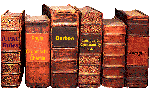| Professor | Dr. Rainer Glaser |
| Office | 321 Chemistry Building |
| GlaserR@missouri.edu | |
| Course Web Site | http://web.missouri.edu/~glaserr/RG_T_WS07.html |
| Lectures | MWF 9 - 9:50am, Waters Auditorium |
| First Lecture | Wednesday, January 17, 2007 |
| Office Hours | TR 10 - 10:30am |
Course Goals
Organic chemistry is pervasive in every aspect of modern life. Chemistry
is the central science and every science major needs to master chemistry.
Many consumer choices, economic choices and political choices require the
understanding and competent application of chemical concepts. Chemistry
knowledge thus informs both the professional life of a science major
as well as his/her life as good citizen in a democratic society. It is
the goal of this course to teach students the abilities to ...
[1] Learn the (symbolic) language of organic chemistry.
[2] Develop clear conceptual ideas and quantitative knowledge about the sources, properties, reactions and uses of organic chemical materials.
|
Organic Chemistry |
Course Materials

For the purpose of testing and performance assessment, the course content
is defined by the activities during regularly scheduled meeting times.
Examinations
Evaluated Activities Points Quiz #1 50 Quiz #2 50 Exam #1 100 Exam #2 100 Exam #3 100 Final 200 Course Total 600Quizzes (50 points each) are in class and can happen at any time. Exams (100 points each) are announced, one-hour, in-class examinations (see Schedule).
Tutoring Support
The Learning Center
offers a Science Help Session for "2100 Organic Chem 1" on Monday
and Wednesday, 5-6pm, A&S 233, starting January 22, and Stephen Eikermann is the
LC-funded tutor.
The Department of Chemistry support one GTA to assist with the teaching of Chem 2100.
This GTA is Ms. Papiya Majumdar and she will join the tutoring sessions organized
by the Learning Center. In addition, feel free to contact Papiya to set up
additional meetings with her. (We might adjust the TA support as the semester
progresses and announcements will be made in class and on the discussion board as
needed.)
Relevant University
Regulations
Final Examination. The final examination is scheduled for Friday, May 11, 2007, 10:30am - 12:30pm (added 03/01/07). Time and date of the final examination are determined by Article V of the Academic Regulations which are designed to protect students from irregularities in the administration of final examinations. The following two excerpts from Article V are relevant to this graduate class. (1) No teacher will hold an examination during any time other than the regular meeting time of the class or the time as approved by the Registrar for both final and multi-section examinations. The only exception is that examinations in courses numbered 8000 and above may be conducted at any time agreeable to both the teacher and the students. (2) No examination may be held during Stop Day.
Academic Honesty. Academic honesty is fundamental to activities and principles of a university. All members of the academic community must be confident that each person's work has been responsibly and honorably acquired, developed, and presented. Any effort to gain an advantage not given to all students is dishonest whether or not the effort is successful. The academic community regards academic dishonesty as an extremely serious matter, with serious consequences that range from probation to expulsion. When in doubt about plagiarism, paraphrasing, quoting, or collaboration, consult the course instructor. Proven academic dishonesty will be reported to the Provost for Academic Affairs and the student's Dean.
Instructional Communication Policy. MU is determined to promote effective communication between students and academic personnel involved in instruction. To report communication problems with the instructor or the teaching assistants, please contact Dr. John Adams, Director of Undergraduate Studies, Department of Chemistry; e-mail: AdamsJE@missouri.edu.
Compliance with the Americans with Disabilities Act. If you need accommodations because of a disability, if you have emergency medical information to share with me, or if you need special arrangements in case the building must be evacuated, please inform me immediately. Please see me privately after class, or at my office. To request academic accommodations (for example, a note taker), students must also register with Disability Services, AO38 Brady Commons, 882-4696. It is the campus office responsible for reviewing documentation provided by students requesting academic accommodations, and for accommodations planning in cooperation with students and instructors, as needed and consistent with course requirements. For other MU resources for students with disabilities, click on "Disability Resources" on the MU Home Page (upper right) or visit the Disability Services web site.